The IAF workshops are focussed, interactive sessions, designed to bring together anyone with an interest in the care of people with achondroplasia and related conditions, including clinicians, patient advocacy group representatives, individuals with achondroplasia and their families. Our workshops involve in-depth discussion, consensus gathering, and the development of practical tools and recommendations. By fostering collaboration and shared learning, IAF workshops contribute to ongoing improvements in clinical practice globally.
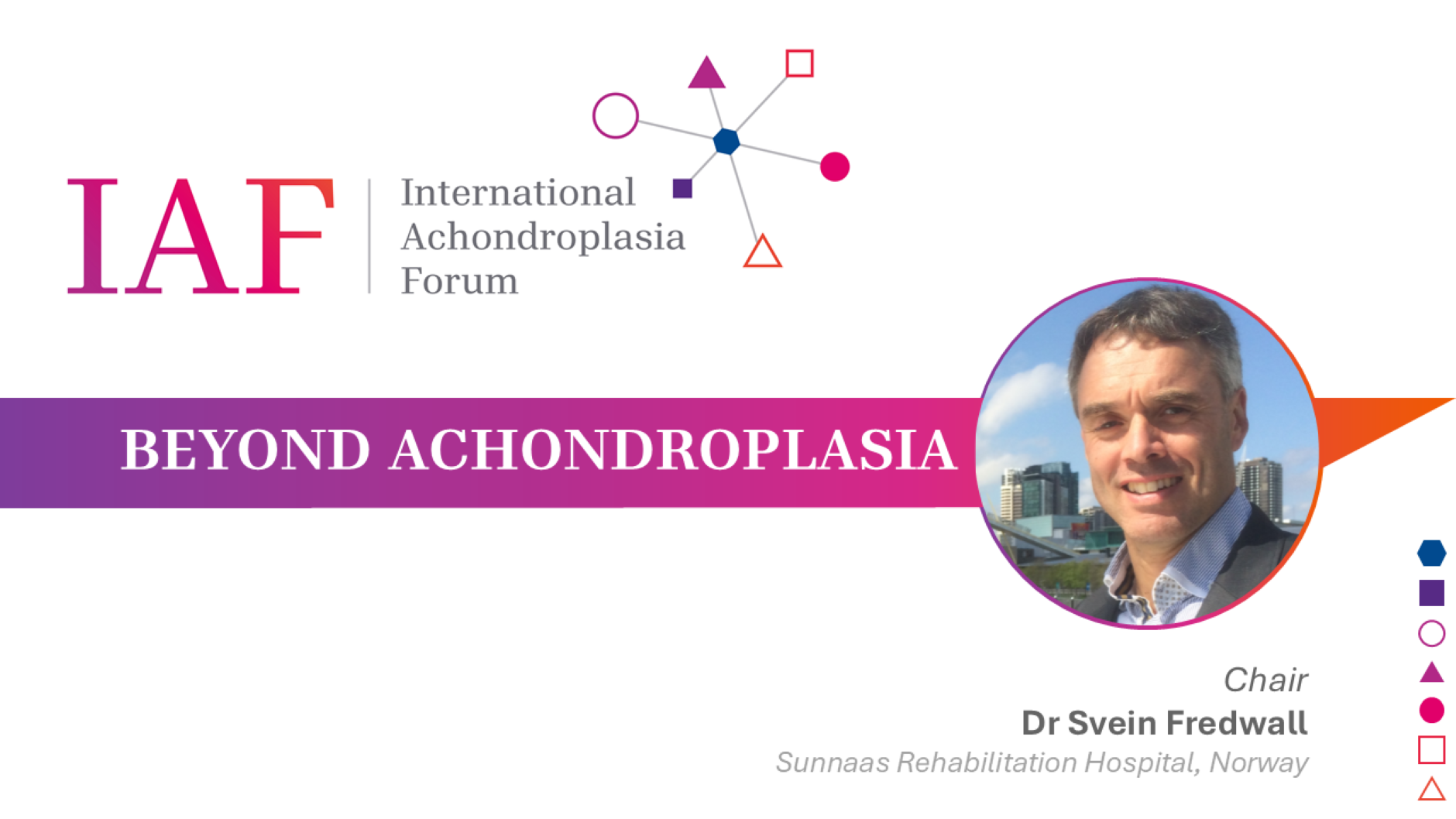
Beyond Achondroplasia
Recording and Slides Now Available!
29th April 2025
In our first workshop as the IAF, Dr Svein Fredwall chaired a world-leading faculty as they examined the pathways, potential targets for treatment, and therapeutic pipeline for achondroplasia, Noonan syndrome, Turner syndrome, SHOX deficiency and osteogenesis imperfecta. A great introduction to the IAF and the conditions we cover, and well worth a watch!
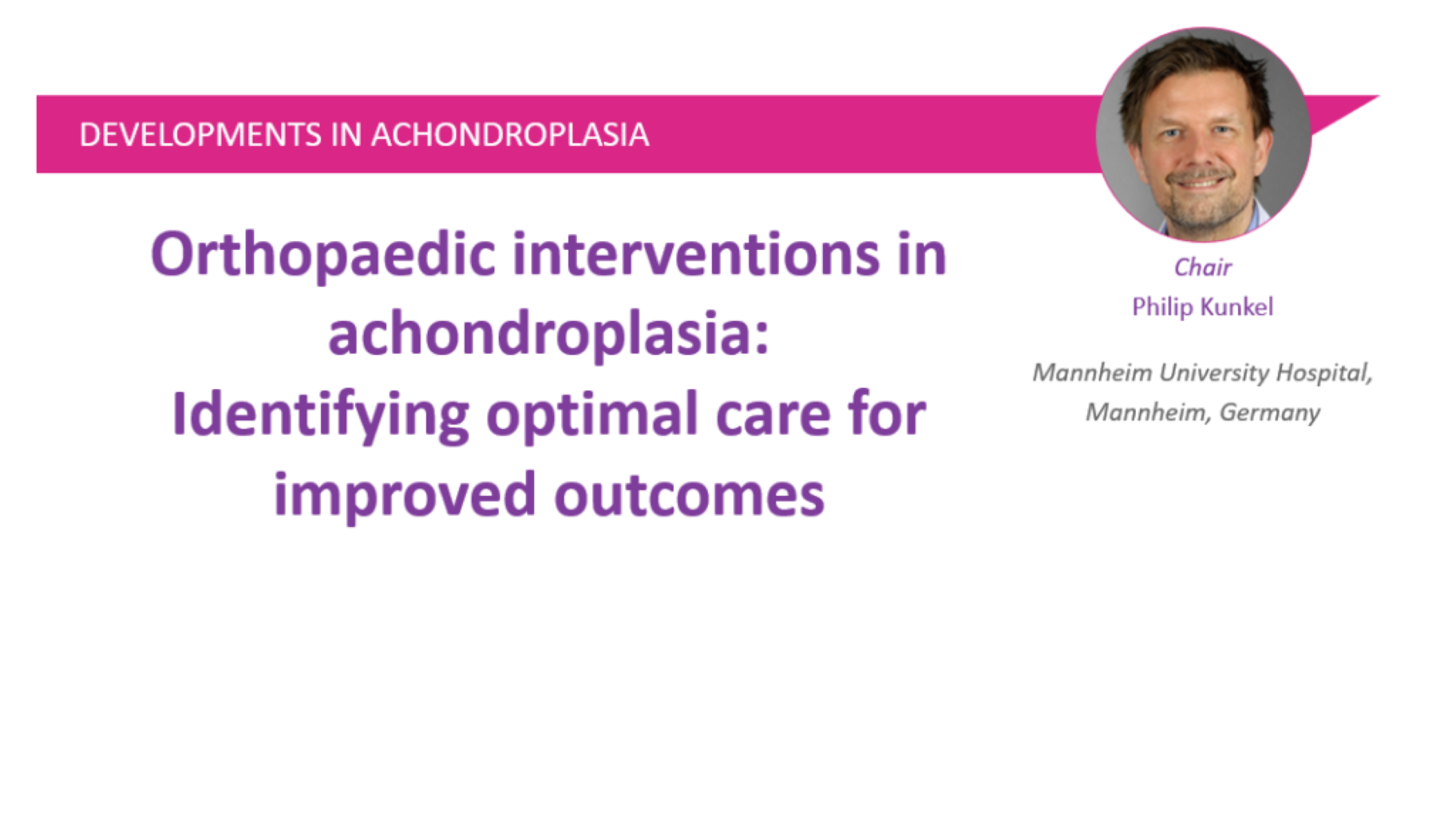
Orthopaedic interventions in achondroplasia: Identifying optimal care for improved outcomes
Recording and Slides Now Available!
29th October 2024
Due to the nature of the condition, almost all people with achondroplasia will experience orthopaedic issues at some point during their lives and will likely require surgical interventions. It is important to establish which orthopaedic interventions are required, and whether they can be managed through other means.
During our workshop, Chair Dr Philip Kunkel lead our expert faculty, Drs Carmen Vleggeert-Landkamp, Simone Riganti, and Antonio Leiva-Gea as they discussed whether orthopaedic interventions in achondroplasia could be avoided, common issues with orthopaedic surgeries, and practical guidance for lead physicians on providing optimal post-surgery care.
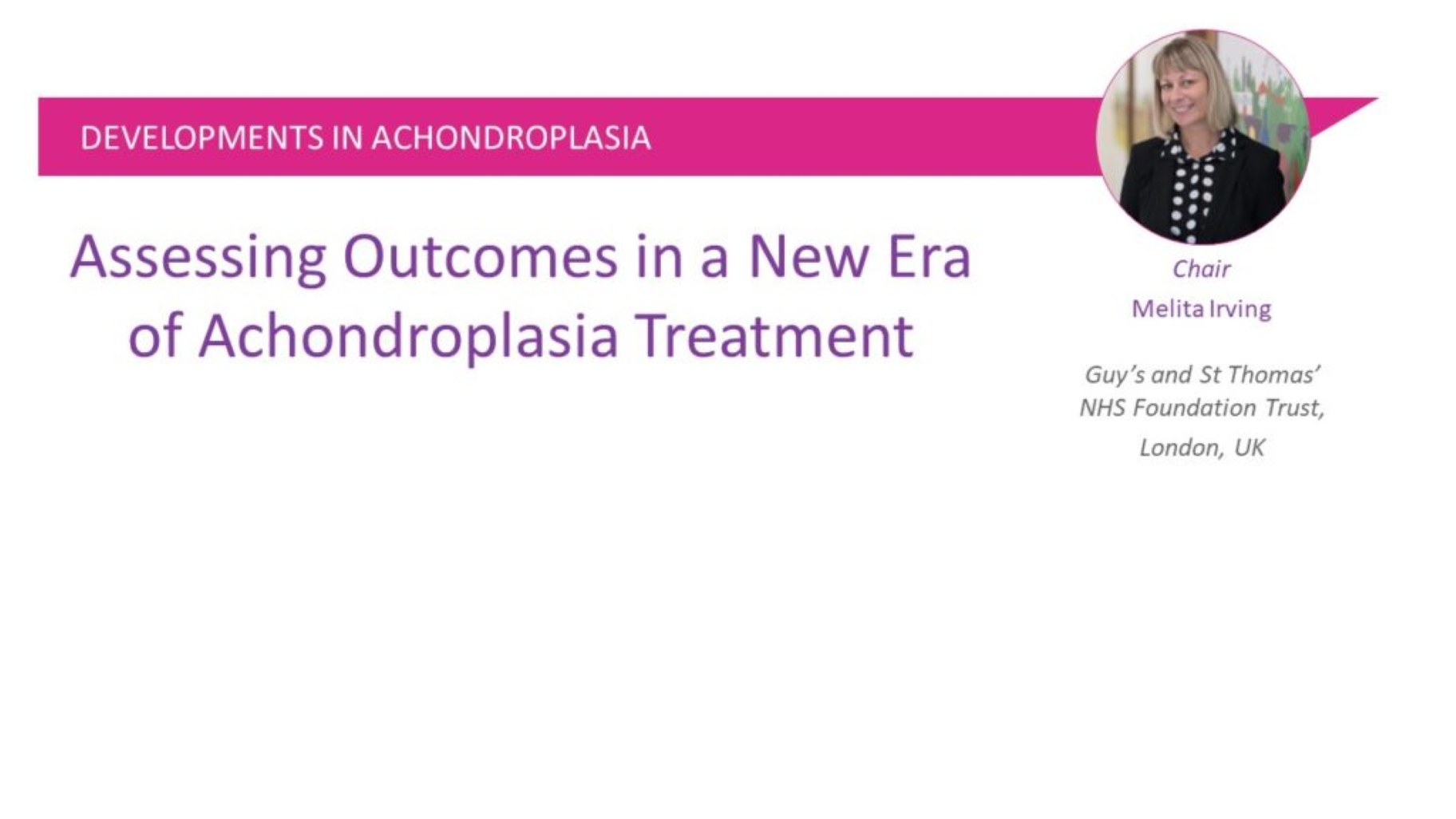
Assessing Outcomes in a New Era of Achondroplasia Treatment
Recording and Slides Now Available!
24th April 2024
As our understanding of achondroplasia progresses and new therapeutic options are developed, it is important to evaluate whether the tools we use in practice are still suitable to accurately assess outcomes.
During our Spring workshop, Assessing Outcomes in a New Era of Achondroplasia Treatment, Dr Melita Irving lead the discussion with Doctors Geneviève Baujat, Sérgio de Sousa, and Antonio Leiva-Gea on whether current achondroplasia outcome measures are fit for purpose in the era of therapeutic management, on therapeutic management in the real world, as well as on the new treatment options in development.
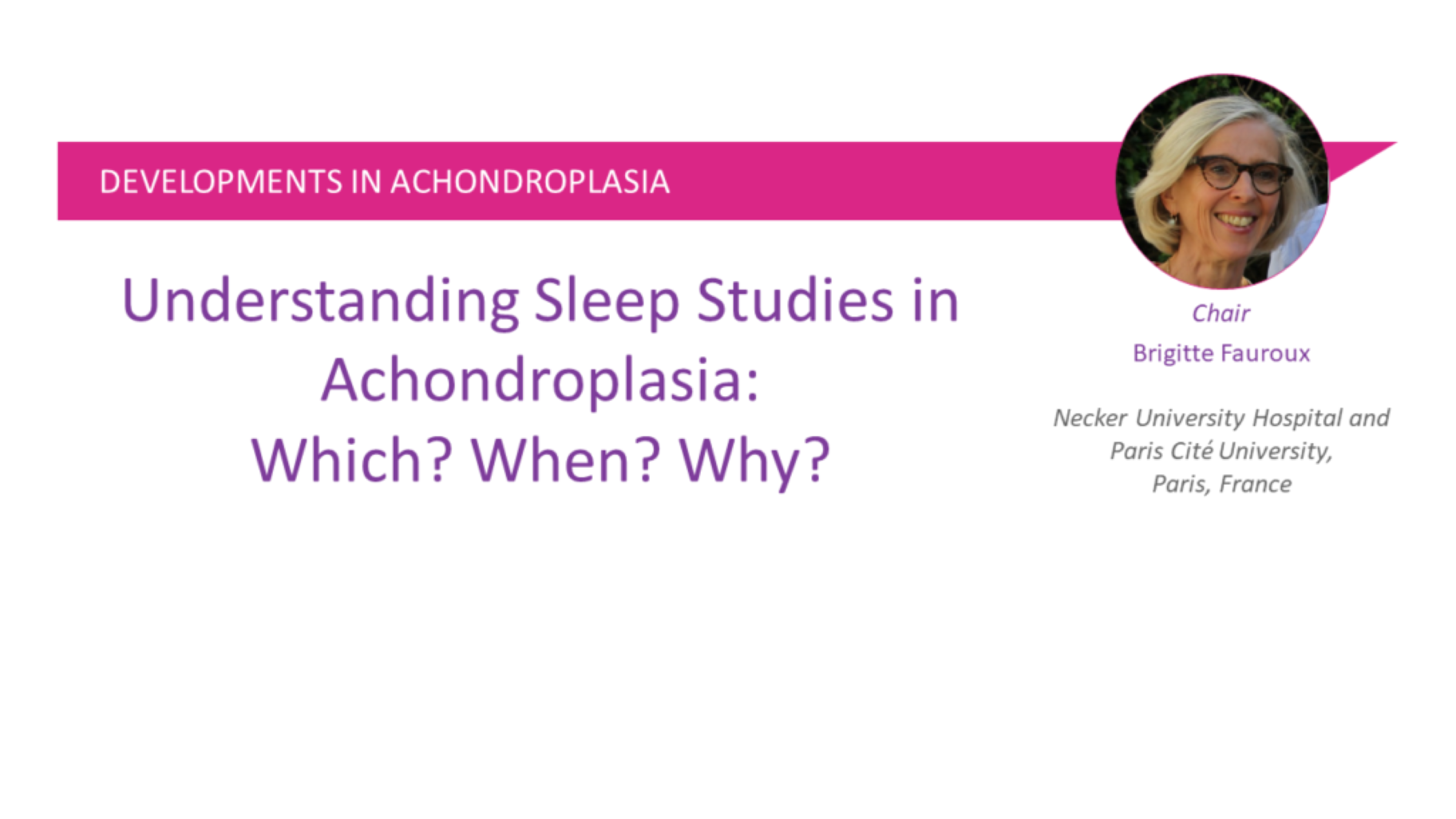
Understanding Sleep Studies in Achondroplasia: Which? When? Why?
Recording and Slides Now Available!
24th October 2023
There have been numerous unresolved questions in Advances in Achondroplasia concerning sleep studies, highlighting a gap in our collective knowledge in caring for individuals with achondroplasia. Consequently, we chose “Understanding Sleep Studies” as the theme for our last virtual workshop, held on Tuesday, October 24th. Chaired by Professor Brigitte Fauroux, we reviewed different types of sleep studies, their suitability, the importance of interpretation, and available treatment options for children and adults affected by sleep-disordered breathing due to achondroplasia.
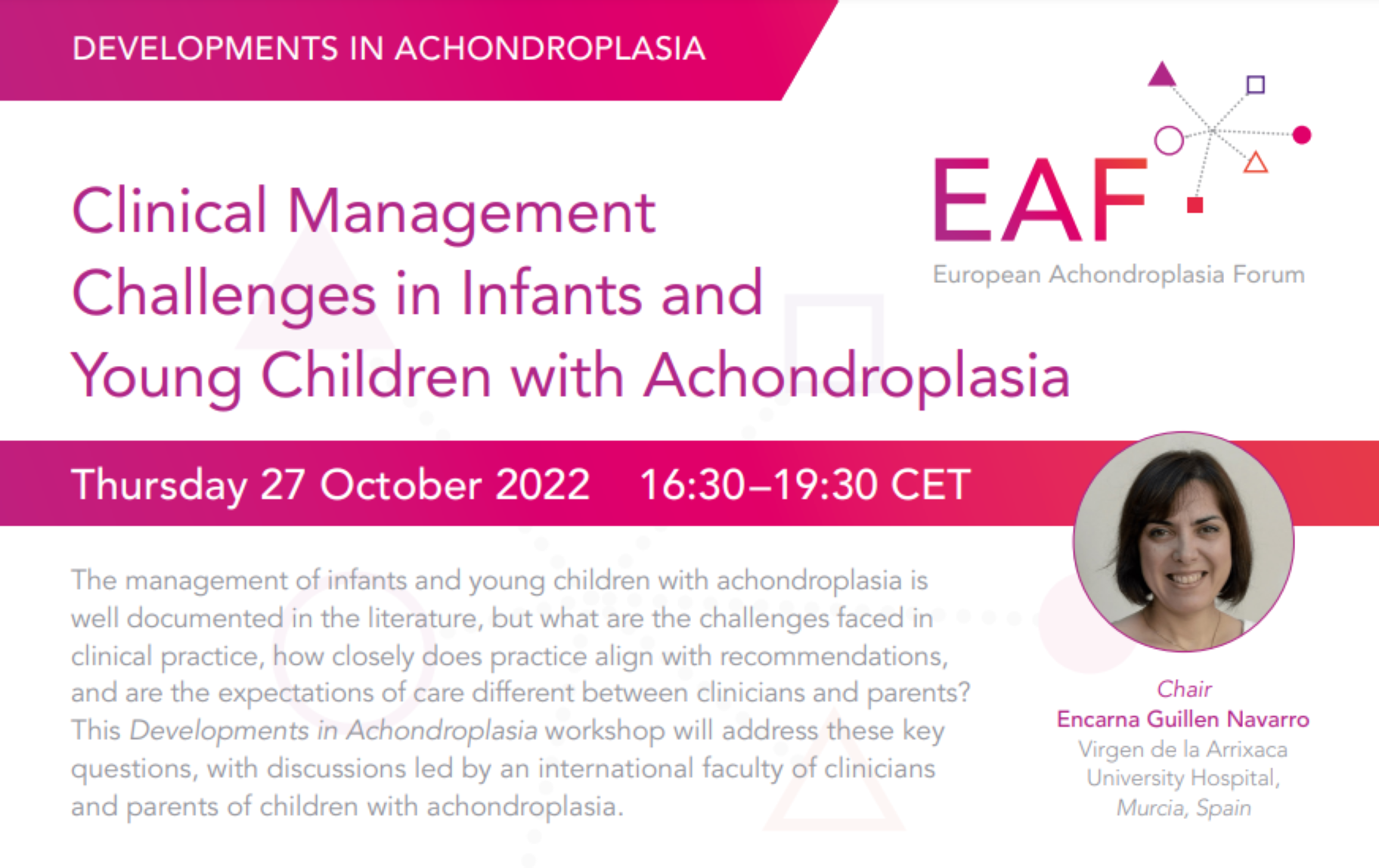
Clinical Management Challenges in Infants and Young Children with Achondroplasia
Recording and Slides Now Available!
27th October 2022
Chaired by Encarna Guillen-Navarro, our esteemed faculty led some great discussions on the clinical challenges and outcomes of importance in infancy and early childhood, from both the healthcare professional and family perspective. There were some differences, and we discussed the potential reasons for these. Geert Mortier then led a review of the recommendations available in this age group and asked whether clinical practice is in alignment. You can watch the discussions and read our minutes from the meeting now!
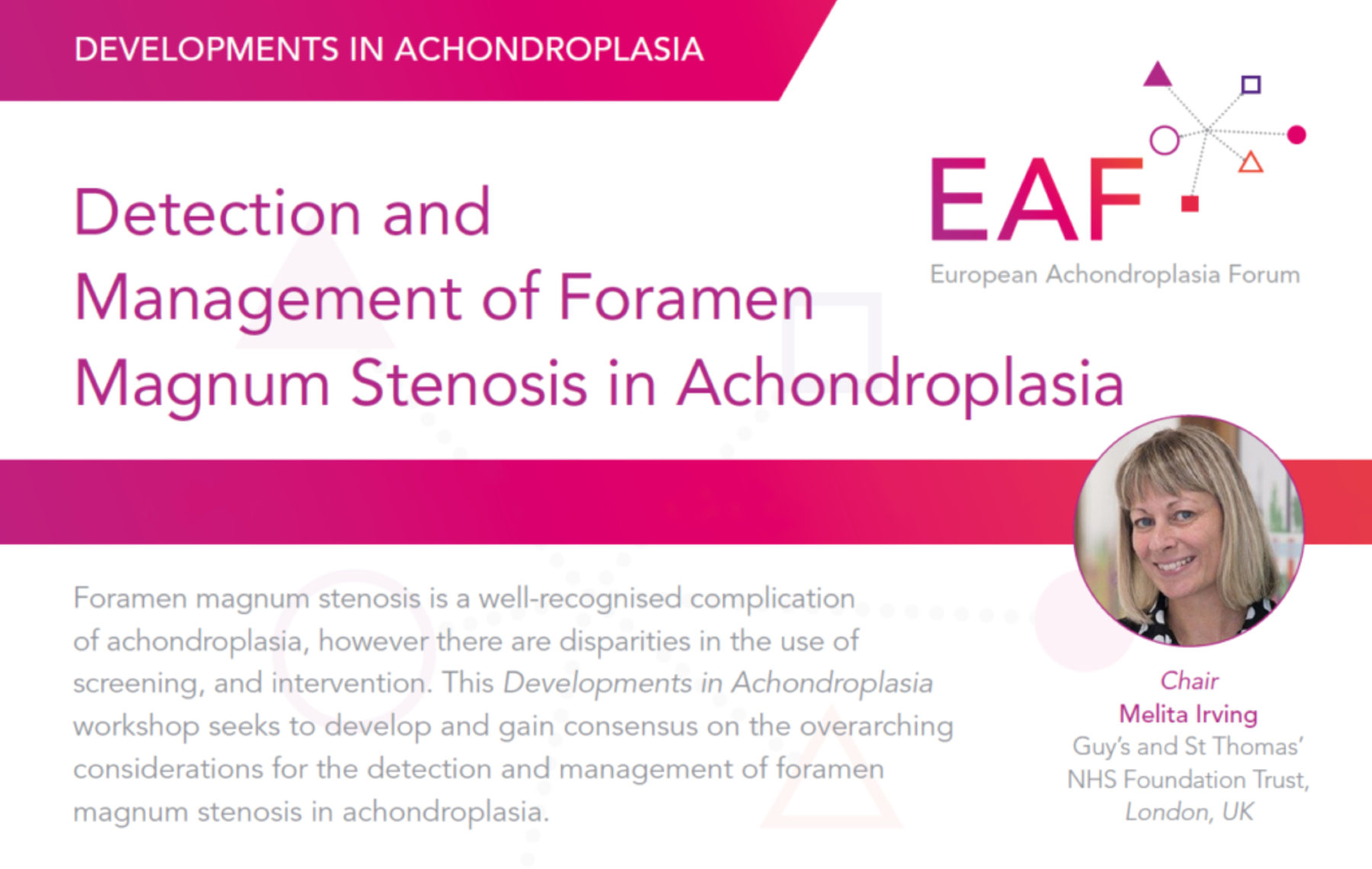
Detection and Management of Foramen Magnum Stenosis in Achondroplasia
Recording and Slides Now Available!
6th April 2022
Workshop Chair, Doctor Melita Irving, was joined by Professor Klaus Mohnike, Doctor Geneviève Baujat, Doctor Paul Arundel, Doctor Philip Kunkel, and Doctor Heike Hoyer-Kuhn to discuss screening, indicators for intervention, the decision-making process to decompress and strategies for previously undetected foramen magnum stenosis. Consensus was reached on six guiding principles for the detection and management of foramen magnum stenosis.
